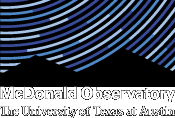Astronomers Confirm Maisie’s Galaxy is Among Earliest Ever Observed
BY MARC AIRHART
Thanks to the James Webb Space Telescope, astronomers racing to find some of the earliest galaxies ever glimpsed have now confirmed that a galaxy first detected last summer is in fact among the earliest ever found. The findings are in the journal Nature.

